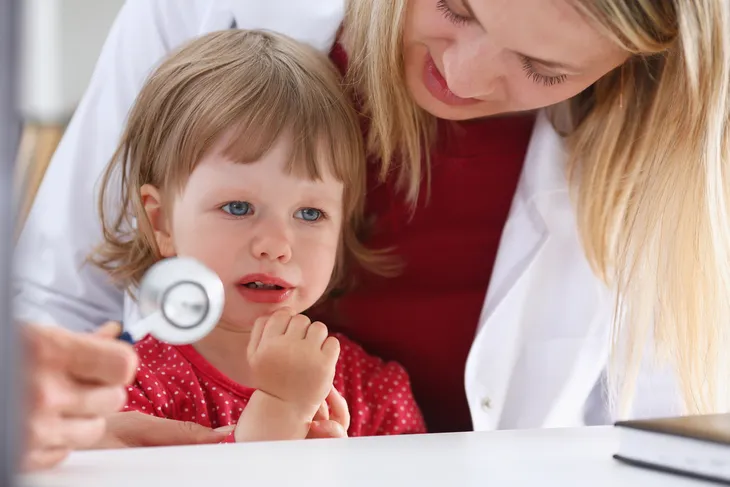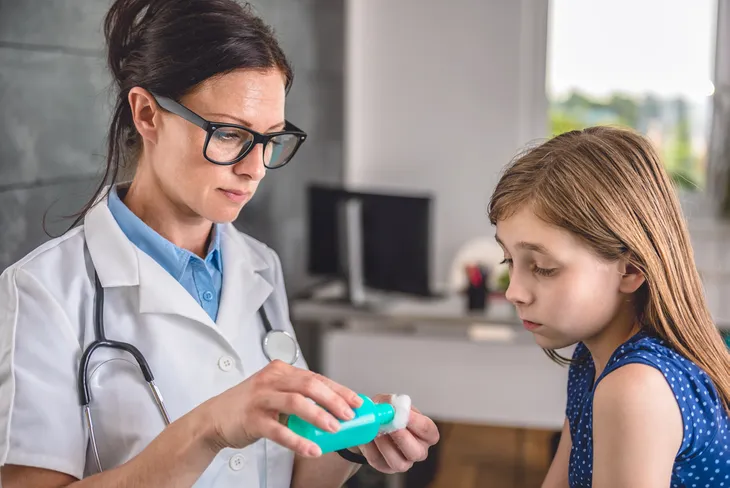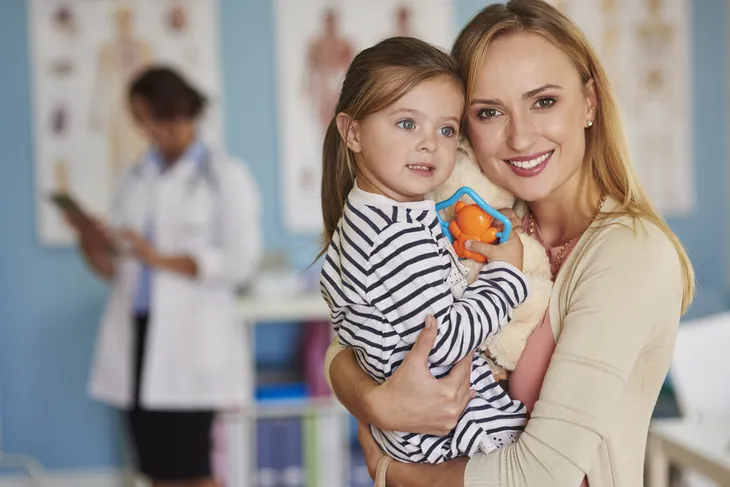Going to the doctor is not much fun for adults, let alone kids. It can get even more challenging when young ones see the doctor preparing the needle, and they start pulling away.
However, getting a flu shot for your child is important, and it doesn’t have to be scary with the right approach. While there’s no guarantee it’ll be a tear-free experience, here are six tips for helping your kids be best prepared both mentally and physically for the vaccine…
Tout the Benefits
Boston Children’s Hospital says that avoiding telling your child about the shot until you’re already at the doctor’s office is not the right move. Instead, it suggests calmly explaining the vaccine to them ahead of time in a calm and relaxed tone.
“Use honest, simple explanations that your child can understand,” it says. In particular, make sure you tell them why they need it to avoid getting the flu, which they’ll be a lot more miserable about than a vaccination that takes seconds.
Feed Infants First
If you’re bringing a young child in for a flu shot, it’s best to make sure they’re not cranky and squirmy when they’re about to get their shot. The best way to do this is to make sure they’re adequately napped and fed ahead of time. “A well-rested and comfortable baby is a baby well prepared to be immunized,” says Alberta Health Services.
The source recommends feeding your baby about 1 or 2-hours before the immunization appointment and putting them down for a nap 2 to 4-hours before the appointment. Also, make sure your child is dressed comfortably, it adds.
Be Truthful and Supportive
Don’t try to sugarcoat the flu shot, warns Boston Children’s Hospital. If you tell them they won’t feel a thing and it ends up hurting, they’re going to remember that (and possibly form some trust issues).
Also, try to be as supportive as possible during the appointment – tell your child it’s okay to be nervous, but it will be over with soon (which is a true statement). Don’t get frustrated or angry with your child if they’re showing hesitation – this won’t help.
Cradle Them
Parents can take a lot of stress off a child by placing them in their lap before the shot, notes the Centers for Disease Control and Prevention (CDC). Embracing your child while they sit in your lap can help prevent them flailing their arms during the vaccination, it adds.
There are various ways to hold your child depending on their age, adds the CDC. For example, if your infant is getting a shot in their leg, “Place the child’s arms under one of (your) own arms and around their back and apply gentle pressure for a secure, hug-like hold,” it suggests. This technique could be used for any type of vaccination, as the site doesn’t specify.
Distract Them
Instead of sitting in a quiet doctor’s office waiting for the white coat to come in, you could engage in some quality time with your child – perhaps right up until and during the shot being delivered.
VeryWell.com suggests having them read aloud to you (or read to them if they’re not there yet), sing a song together, play a game of “I Spy,” or just simply talk to them to calm their nerves. If those don’t work, you could resort to electronics like handheld video games, it adds.
Let Them Pick a Bandage
Explain to your child that the needle will leave a little mark and will need to be covered for a little while to protect it. However, instead of letting the doctor apply their standard (boring) bandage when the deed is done, you can use your own bandage (as long as the doctor’s okay with it).
Make it a little outing to the store together so your child can pick out a colorful bandage or ones with their favorite characters on them to ” make preparation for the shot a fun experience,” suggests ENannySource.com.








